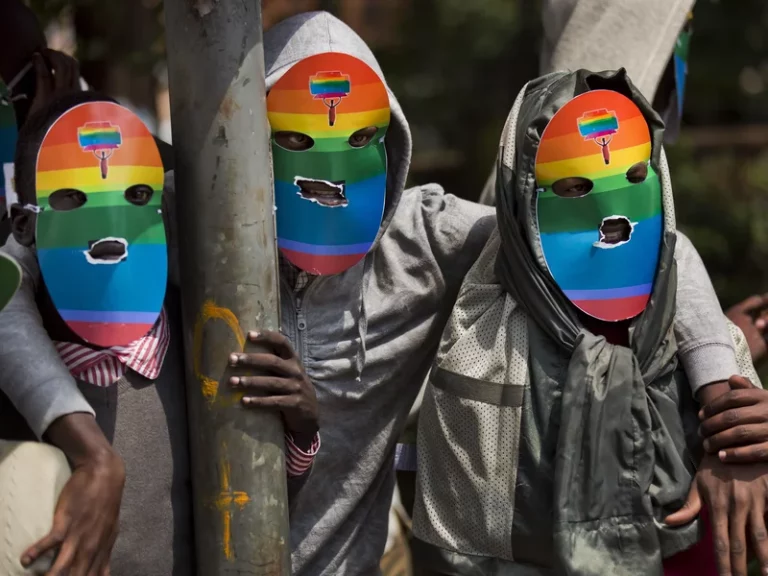The Ugandan parliament recently enacted some of the most comprehensive anti-LGBTQ laws in the world.
Even though same-sex acts were already forbidden in Uganda, lawmakers decided to outlaw the so-called promotion of gay identity on Tuesday night.
The anti-homosexuality bill was overwhelmingly approved by lawmakers in a crowded chamber, with only two of the nearly 400 representatives voting against it.
“Congratulations,” said Speaker Anita Among. “Whatever we are doing, we are doing it for the people of Uganda.”
Laws from the British colonial era made same-sex acts illegal in Uganda, but this new legislation goes much further.
The death penalty may be applied to so-called aggravated homosexuality, which includes having sex with an HIV-positive person. The law would also punish those who identify as gay or queer, as well as perhaps individuals or groups who are thought to support or promote LGBTQ identity.
Activists and civil rights organizations in the nation have harshly criticized the law.
Ugandan LGBTQ activist Richard Lusimbo told NPR “the LGBTQI community has basically been told, you can’t raise your head, you can’t be seen, you can’t be heard”
However, Lusimbo, like many others, believes that pressure from both inside and outside the nation led to the passage of this legislation. “From the very start, this whole bill coming into Uganda was because of, for example, American evangelicals who would come to Uganda. And what’s happening in Uganda is not just in isolation”
More than 30 of the 54 nations in Africa have laws against homosexuality.
There has been swift international condemnation.
The bill “would undermine fundamental human rights of all Ugandans,” according to tweets from U.S. Secretary of State Antony Blinken. ” He added, “We urge the Ugandan Government to strongly reconsider the implementation of this legislation.”
John Kirby, a spokesman for the White House National Security Council, said that Washington is “watching this very closely” and did not rule out potential economic “repercussions” if the legislation is put into effect.
Volker Türk, the High Commissioner for Human Rights of the United Nations, referred to it as a “deeply troubling development.”
“If signed into law by the president, it will render lesbian, gay and bisexual people in Uganda criminals simply for existing, for being who they are,” he said. “It could provide carte blanche for the systematic violation of nearly all of their human rights and serve to incite people against each other.”
A previous anti-homosexuality law was passed by Uganda in 2014, but it was later overturned by the courts on procedural grounds in response to protests from both domestic and foreign donors.
The new legislation was referred to as a “more egregious version” by Human Rights Watch.
Yoweri Museveni, the president of Uganda, has endorsed the legislation and is anticipated to sign it into law.

